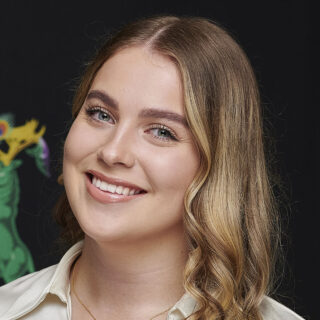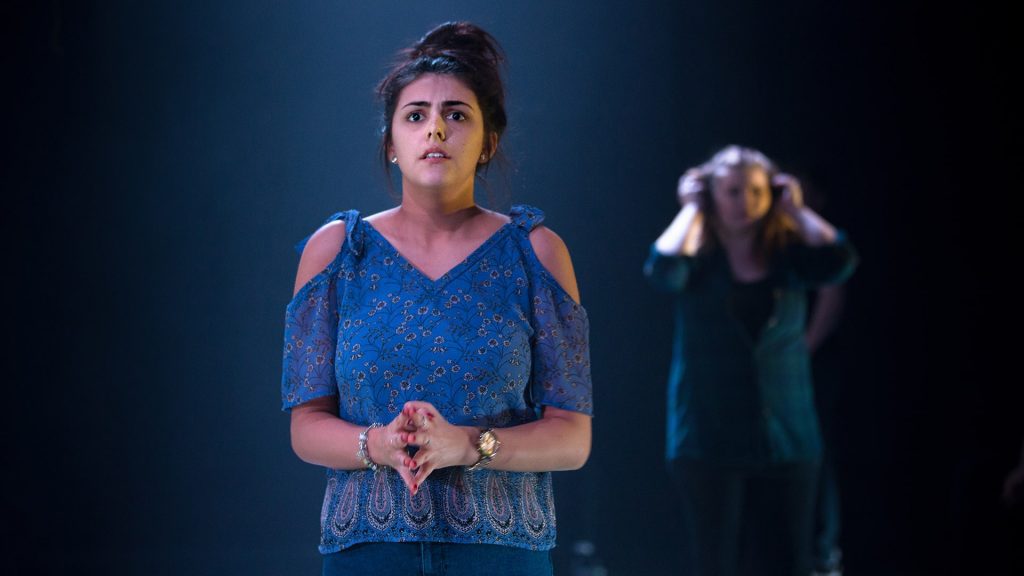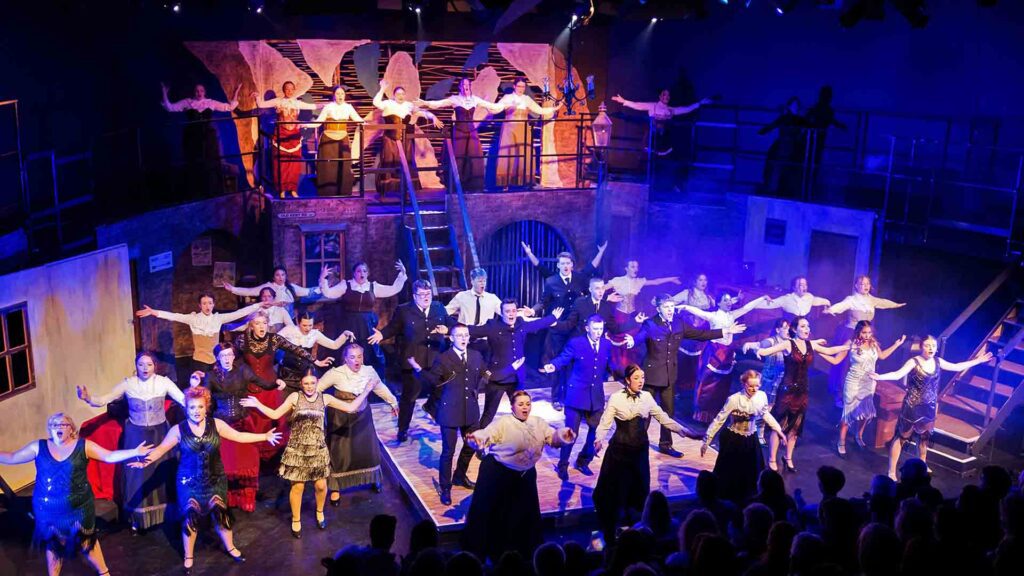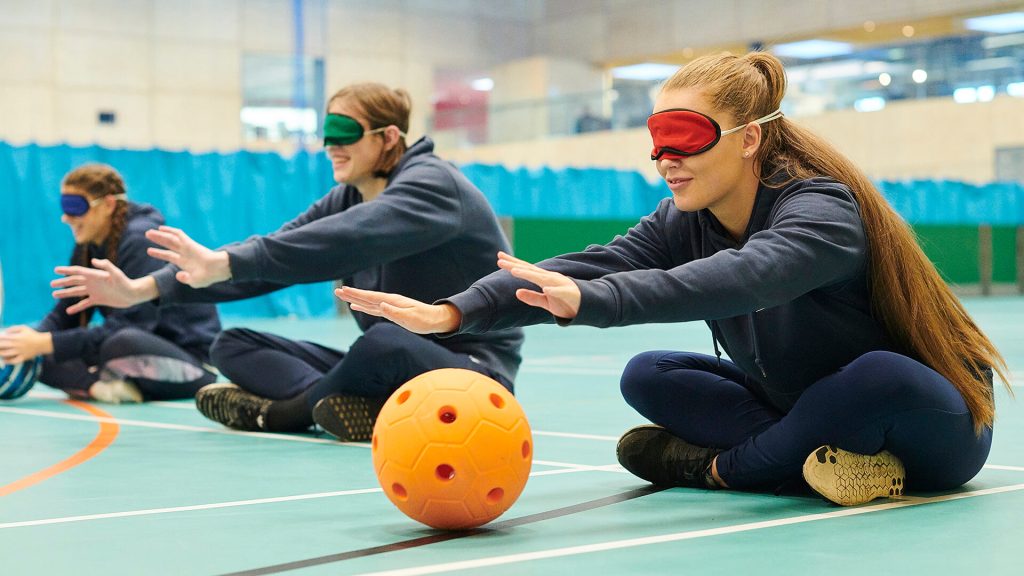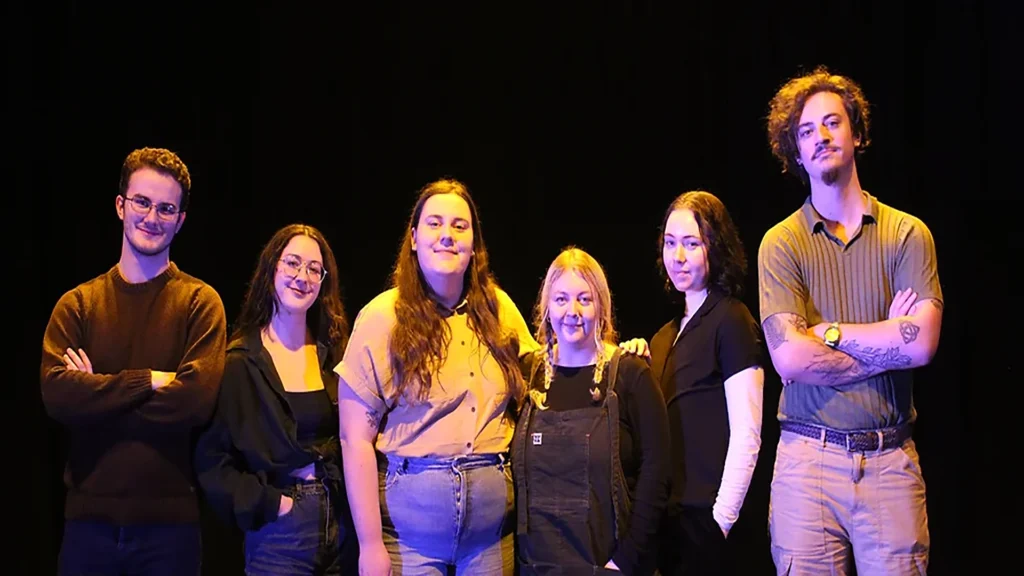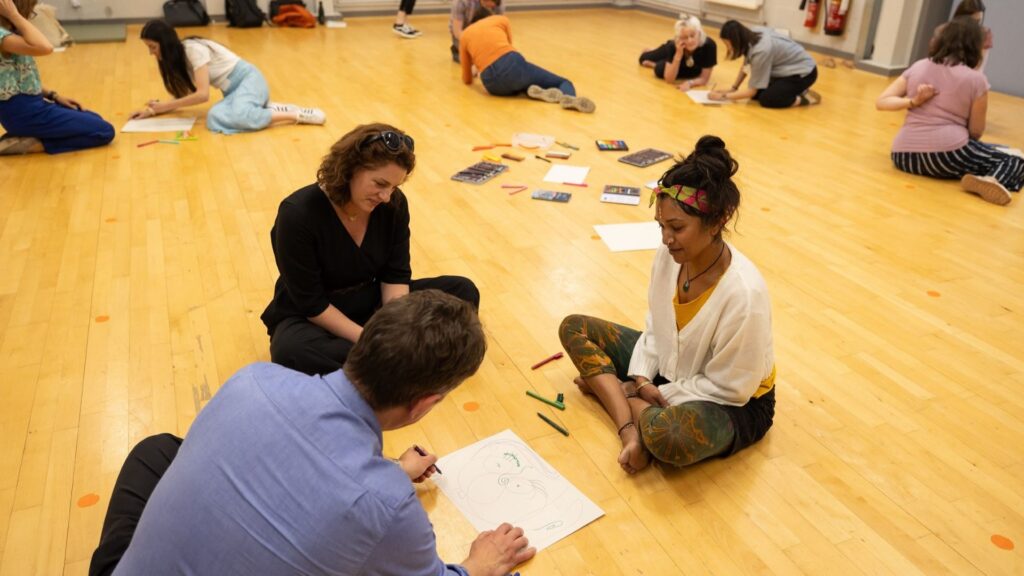Dance BA (Hons)
UCAS code: W500
Experiment. Push boundaries. Celebrate dance. Explore your creative potential in performance and choreography with tutors employing the latest teaching practices. Refine technique and theory as you grow as a reflective and creative dance artist on Edge Hill University’s dance degree.
Overview
| Course length: | 3 years full-time 6 years part-time |
|---|---|
| Start dates: | September 2025 September 2026 |
| Location: | Edge Hill University |
| Example offers: | BBC-BBB (A Level) or DMM (BTEC) |
| Subject(s): | Dance, Drama and Musical Theatre |
| Faculty: | Arts and Sciences |
| Department: | English and Creative Arts |
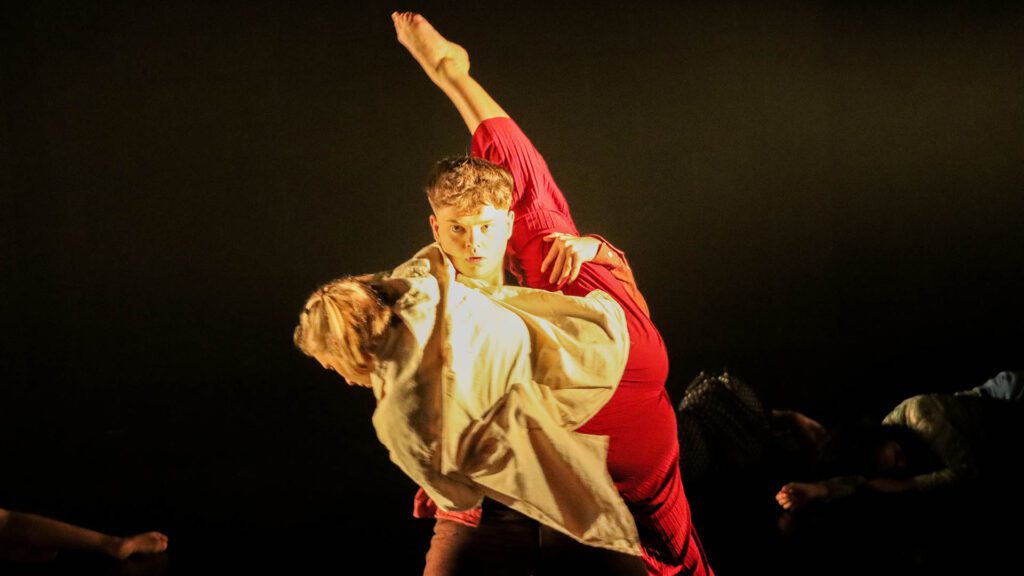
Follow your dreams as a creative practitioner with a dance degree that gives you the knowledge, skills and experience to launch a professional career.
Dance to your heart’s content on our BA (Hons) Dance course. We’re 2nd in the UK for teaching (National Student Survey 2024 – Dance), so you’ll be immersed in practical performance projects, technique classes, and inspiring seminars. Collaborate with professionals in dance-making for a wide range of performance settings. You’ll study dance techniques and theories essential to current practice.
We’ll encourage and enable you to perform and grow as artists in our Arts Centre theatres and studios – we’re ranked 2nd in the North West for learning resources (National Student Survey 2024 – Dance).
Your artistic and creative development is everything to us. See dance through different lenses as you explore performance and choreography, applying your skills in different contexts. Our research-active practitioners will help you elevate your perception and experience of the body, and develop cultural perspectives.
Our culture of performance will expand your portfolio, workshopping new ideas and helping you make connections with visiting professionals. Learn to fund and pitch projects. Gain industry skills as part of our staff and student-led dance companies. By the time you graduate, you’ll be ready to work as an independent dance professional.
Course features
-
International students can apply
-
Sandwich year option available
-
Studying abroad option available
What you'll study
What goes into a performance? How can we describe dance? You’ll discover why dance remains a dynamic and important contemporary artform. Develop your skills in devising and creating dance alongside your technical and performance ability. See how theory and history inform applied dance projects as you investigate choreography, dance-making and performance for stage and other settings.
You’ll develop as a dancer and choreographer in Year 2. Creating as individuals and within a collective, you will make new work guided by your tutors – planning, collaborating and choreographing to perform on a public stage. As well as celebrating dance as an inclusive practice, you will strengthen your progress by refining your technique, learning to question and analyse approaches to dance-making.
In your final year you’ll refine your technique, performance and choreography skills to become industry-ready. You’ll build your portfolio and learn how to fund projects. We’ll encourage you to pursue your own interests in an independent research project that will also prepare you for work or postgraduate study.
How you'll study
A wide range of teaching styles are offered, delivered through practical workshops, technique classes, performance projects, formal lectures and seminars.
Through creative projects, ensemble work and personal research, you will acquire critical and creative skills which will be of use in a wide range of future careers. You will develop a personal portfolio and prepare practice CVs for employment, supported by sessions in career planning.
The Dance team work closely with professional bodies to ensure the course teaches cutting edge practices and enables you to develop teamwork skills, lead group projects, and participate in management activities with an emphasis on self-efficacy.
Students will have the opportunity to undertake creative opportunities with companies and organisations, and a wide range of dance artists from different backgrounds. Students are also offered the opportunity to take workshops and performances into educational and community settings.
In addition, the award-winning student-led Dance Society delivers evening classes and organises performances on campus, as well as competing in dance events.
How you'll be assessed
As part of your student journey, your tutors will support you towards your assessments, which we see as a way for you to celebrate your learning. The different points of assessment prepare you for real-life scenarios, whether that be performance, presentations, portfolios, written work, or a viva/interview. As part of your personal development, you will have opportunities to reflect on your learning to recognise and build your skill sets.
There are no formal written examinations as part of the current assessment methods on this degree.
Who will be teaching you
You will be taught by a dedicated team of academic specialists and professionally-experienced dance practitioners and you will benefit from a wide range of dance experiences. Learning is driven by the principle of research-informed teaching and supported by a team of experienced theatre technicians.
To enhance your experience, the department has industry links with a wide range of professional bodies both regionally and nationally. These include Ludus Dance, The Grand Theatre Blackpool, Lisa Simpson Dance, Curious Minds, Company Chameleon, Company Carpi, Culture Warrington, The Everyman and Playhouse, Tate Liverpool, and Arts Council England.
These well-established links have enabled students to gain experience creating, performing and touring work by professionals including Company Carpi, Levantes Dance Theatre, Theo Clinkard, Joss Arnott, Company Chameleon, Garry Clarke, Charlotte Broom, Alesandra Seutin, Eleanor Perry and Daniel Gay Gordon, Coalesce Youth Dance, and Abhinnandana Kodana.
Where your course includes optional modules, these are to provide an element of choice within the course curriculum. The availability of optional modules may vary from year to year and will be subject to minimum student numbers being achieved. This means that the availability of specific optional modules cannot be guaranteed. Optional module selection may also be affected by timetabling requirements. Some restrictions on optional module choice or combinations of optional modules may apply.
Entry criteria
Typical offer 112-120 UCAS Tariff points. No specific subjects are required.
Relevant experience will be taken into account and all offers are made on the basis of an audition.
Example offers
| Qualification | Requirement |
|---|---|
| A Level | BBC-BBB. |
| UCAS Tariff points | 112-120 points. |
| BTEC Extended Diploma (or combination of BTEC QCF qualifications) | Distinction, Merit, Merit (DMM). |
| T Level | Overall grade of Merit. |
| International Baccalaureate (IB) | We are happy to accept IB qualifications which achieve the required number of UCAS Tariff points. Subject-specific requirements at Higher Level (HL) Grade 5 may apply. |
| Access to Higher Education Diploma | 45 credits at Level 3, for example 15 credits at Distinction and 30 credits at Merit or 24 credits at Distinction and 21 credits at Merit. The required total can be attained from various credit combinations. |
Please note, the above examples may differ from actual offers made. A combination of A Level and BTEC awards may also be accepted.
If you have a minimum of two A Levels (or equivalent), there is no maximum number of qualifications that we will accept UCAS points from. This includes additional qualifications such as Extended Project Qualification (EPQ), AS Levels that haven't been continued to A Level, and General Studies AS or A Level awards.
English language requirements
International students require IELTS 6.0, with a score no lower than 5.5 in each individual component, or an equivalent English language qualification.
If your current level of English is half a band, one band, or one-and-a-half bands lower, either overall or in one or two elements, you may want to consider our Pre-Sessional English course.
Fair Entry Criteria
Our new Fair Entry Criteria is a Contextual Admissions Policy that takes an applicant’s personal and educational background into account. This policy will allow eligible applicants to receive up to a two-grade reduction in their entry requirements for this course. Find out more and see if you qualify.
How to apply
Apply full-time
Read our guide to applying through UCAS to find out more about the application process.
International
Please see our international student pages for further information about how to apply as a prospective international student.
Part-time applications require a direct application to Edge Hill. Please select the year of entry that you wish to apply for.
Should you accept an offer of a place to study with us and formally enrol as a student, you will be subject to the provisions of the regulations, rules, codes, conditions and policies which apply to our students. These are available at www.edgehill.ac.uk/studentterms.
If you join a full time undergraduate degree at Edge Hill University, we will guarantee you the offer of a room in our halls of residence for the first year of your course.
Discover our accommodation
Facilities
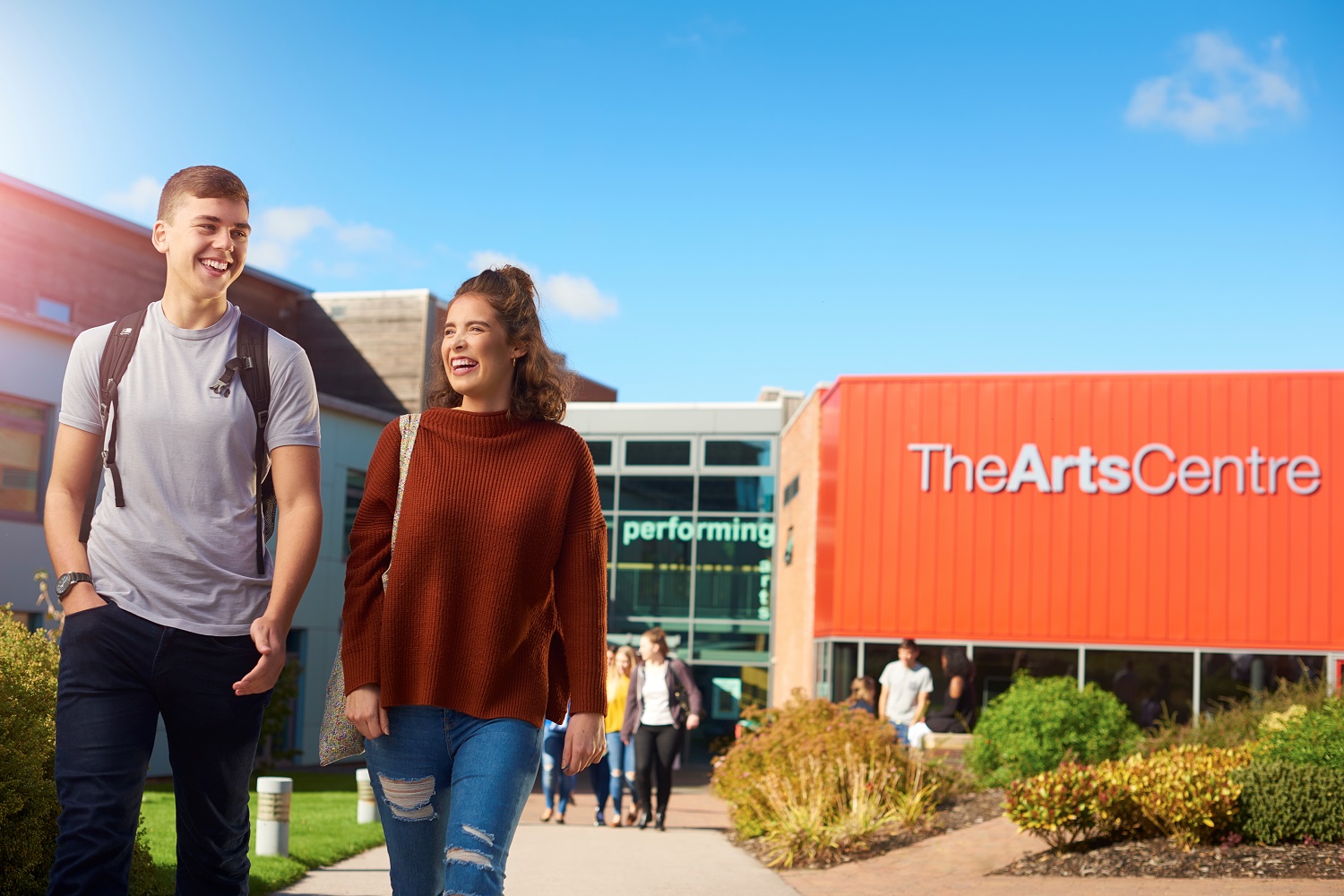 Dance, Drama and Musical Theatre students at Edge Hill University enjoy industry-standard teaching and learning facilities in the £7million Arts Centre which is also home to the Rose and Studio Theatres.
Dance, Drama and Musical Theatre students at Edge Hill University enjoy industry-standard teaching and learning facilities in the £7million Arts Centre which is also home to the Rose and Studio Theatres.
The Department of English and Creative Arts’ outstanding resources ensure you gain practical experience to a professional standard. Contemporary performance environments include dance studios, black box drama studios, rehearsal rooms, a theatre construction workshop, costume construction workshop, scene dock, theatre design studios, digital sound studio, digital design suite, music technology room, music practice studios, a recital room and an outdoor amphitheatre. The Studio Theatre also functions as a fully equipped aerial performance space.
The Arts Centre hosts a diverse range of high-quality productions and performers, including comedy, dance, drama and music, designed to supplement English and Creative Arts programmes and entertain both students and the local community.
Where you'll study
Finance
Tuition fees
UK Full-Time
£9,535
a year
UK Part-Time
£79 per credit
for 360 credits
International
£17,000
a year
EU/EEA and Swiss students who have settled or pre-settled status under the EU Settlement Scheme, as well as Irish nationals, may be eligible for the UK tuition fee rate.
Financial support
Subject to eligibility, UK students joining this course can apply for a Tuition Fee Loan from the Government to cover the full cost of tuition fees. UK students enrolling on the course may also be eligible to apply for additional funding to help with living costs.
Scholarships
We offer a range of scholarships, which celebrate the determination, commitment and achievement of our students. Many of our scholarships are awarded automatically. There are some however, where you will need to be involved in an application or nomination process. To find out more about our scholarships and check your eligibility, please visit our dedicated scholarships pages.
Money Matters
Please view the relevant Money Matters guide for comprehensive information about the financial support available to eligible UK students.
EU/EEA and Swiss students who have settled or pre-settled status under the EU Settlement Scheme may be eligible to apply for financial support. Irish nationals can ordinarily apply to Student Universal Support Ireland (SUSI). If you are an EU student who does not have settled or pre-settled status, or are an international student from a non-EU country, please see our international student finance pages.
Your future career
Our graduates have the specialist skillset to work as artists, performers, choreographers and teachers. Former students now run their own very successful businesses, or are employed by organisations like Company Chameleon, Ludus Dance, Blue Moose Dance Company, Company Carpi, DanceSyndrome, Small Things Dance at Alder Hey Hospital, Divine Days CIC, Arts Council Isle of Man, Carnival Cruise Line, and WigLe Dance CIC.
Many dance students go on to work as freelance dance teachers and community artists. Roles you could aim for include:
- portfolio dance artist
- dance development and learning coordinator
- artistic director
- choreographer
- teacher
- freelance commercial dance artist
- academy manager
- director
Course changes
Every effort has been made to ensure the accuracy of this information, however our courses are subject to ongoing review and development. Changing circumstances may necessitate alteration to, or the cancellation of, courses.
Changes may be necessary to comply with the requirements of professional bodies, revisions to subject benchmarks statements, to keep courses updated and contemporary, or as a result of student feedback. We reserve the right to make variations if we consider such action to be necessary or in the best interests of students.
